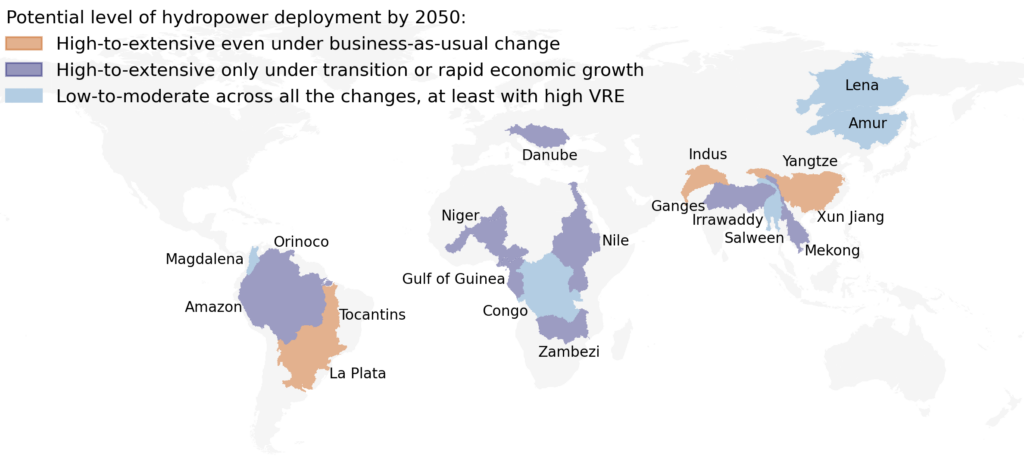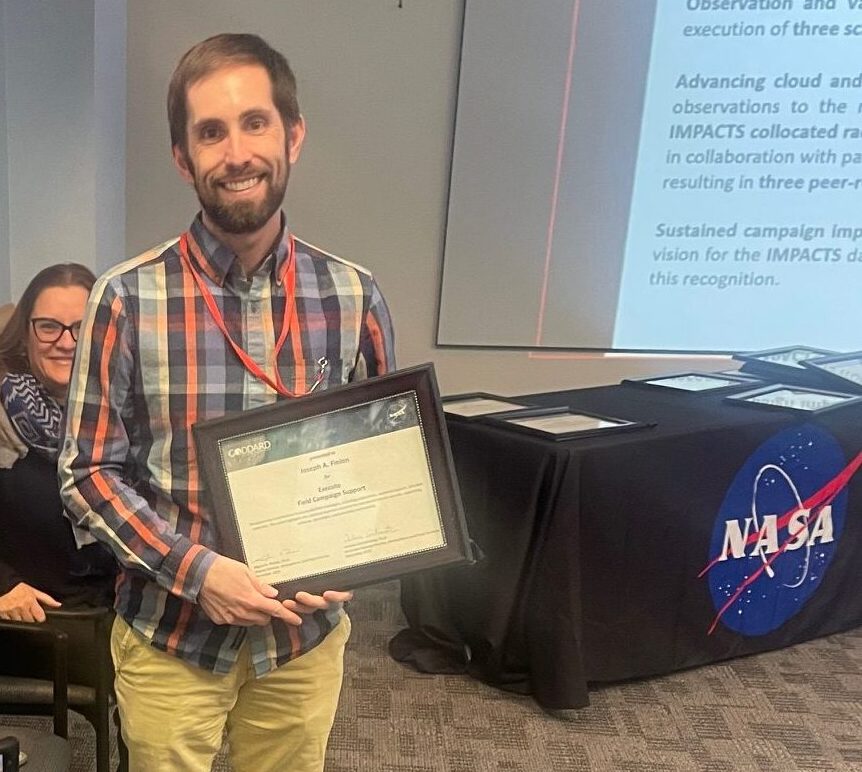The global transition towards a low-carbon future could substantially accelerate hydropower deployment in ecologically sensitive rivers, according to a new study led by researchers at the University of Maryland’s Earth System Science Interdisciplinary Center (ESSIC) in collaboration with Pacific Northwest National Lab (PNNL)’s Joint Global Change Research Institute (JGCRI) and Tufts University. Published in Nature Sustainability, the paper analyzes the future hydropower expansion in the world’s 20 most ecologically sensitive rivers under different socio-economic and energy sector development scenarios.
Hydropower is the largest source of renewable electricity globally, producing 65% of all renewable generation and 16% of all electricity generation. Since 2000, global hydropower has expanded by an unprecedented 75%, and it has even more room to grow. Around three-fourths of the world’s “exploitable hydropower potential” is still untapped, most of which is distributed among tens of thousands of potential hydropower sites in ecologically sensitive river basins such as the Amazon, Congo, and Mekong. These river basins not only host critically important biodiversity but also supply freshwater fish that are the source of income and nutrition for millions of riverine people.
“There are substantial untapped hydropower resources, particularly in the Global South, which could play an important role in both economic development and transition to low-carbon energy,” says Dr. AFM Kamal Chowdhury, ESSIC Assistant Research Scientist, lead author of the paper, “Many decarbonization scenarios in the literature project significant levels of hydropower expansion, including a doubling of global installed hydropower capacity by 2050. However, there are massive concerns over potential socio-ecological impacts of such expansion.”

The potential of hydropower is especially compelling when considering the worldwide shift towards low-carbon energy sources to meet economic and sustainability goals. Many recent studies anticipate that increasingly cheap wind and solar technology might surpass hydropower in the ecologically-sensitive regions. These studies claim that expanding wind and solar would allow these regions the energy expansion needed for economic growth, but limit the socio-ecological impacts associated with hydropower development.
However, Chowdhury and his team found that while increased adoption of wind and solar power does have the potential to offset hydropower in some key eco-sensitive river basins (such as the Congo, Irrawaddy, and Magdalena), it is not a sufficiently large force to offset the pressure on hydropower development in most of the basins across the Global South. This finding is especially true in high-profile basins of global importance (such as the Amazon, Mekong, Ganges-Brahmaputra, Nile, and Niger) that are the focus of extensive discussions surrounding opportunities to avoid socio-environmental impacts.
“In river basins like the Amazon and Mekong, adopting other renewable energy sources likely won’t alleviate pressure on hydropower development,” says Chowdhury, “ Future demand for low-carbon energy to meet decarbonization goals could exert substantial pressure on hydropower resources, even with increased integration of other renewable energy sources.”
Chowdhury and his colleagues identified the Yangtze, Xun Jiang, Indus, Tocantins, and La Plata river basins as among the other hotspots for hydropower development. These basins supply electricity to China, Brazil, India, Pakistan, South Asia, and the Southern part of South America – some of the world’s largest and emerging economies, where future electricity demand far exceeds the current exploitable hydropower potential. This creates substantial pressure to develop hydropower resources.
However, these hotspots for hydropower development are also eco-sensitive regions, which host the world’s largest freshwater fish species as well as supply the highest amount of freshwater fish caught annually. Hydropower expansion into these basins could have serious socio-ecological impacts – including the extinction of freshwater species and declining fish catch. These declining ecosystem services could directly affect nutritional supply and income for millions of people in certain regions that already have a high prevalence of undernourishment.
“These impacts will be felt most acutely by the world’s most impoverished people in the Global South – who depend intimately on ecosystem services for their well-being and whose interests are under-represented in the research literature,” says Dr. Thomas Wild, Earth Scientist at PNNL-JGCRI and one of the lead authors of the paper.
Chowdhury and his team hope that by outlining the tension that exists between reaching net zero emissions by mid-century and protecting freshwater biodiversity and the services it creates, this study supports a more nuanced science and policy discussion surrounding the future role of hydropower in different regions.
“Many nations in the Global South still have dynamic and productive freshwater resources but also have ambitious climate goals,” says Chowdhury, “The specific choices we make about renewable energy will shape those tradeoffs.”





